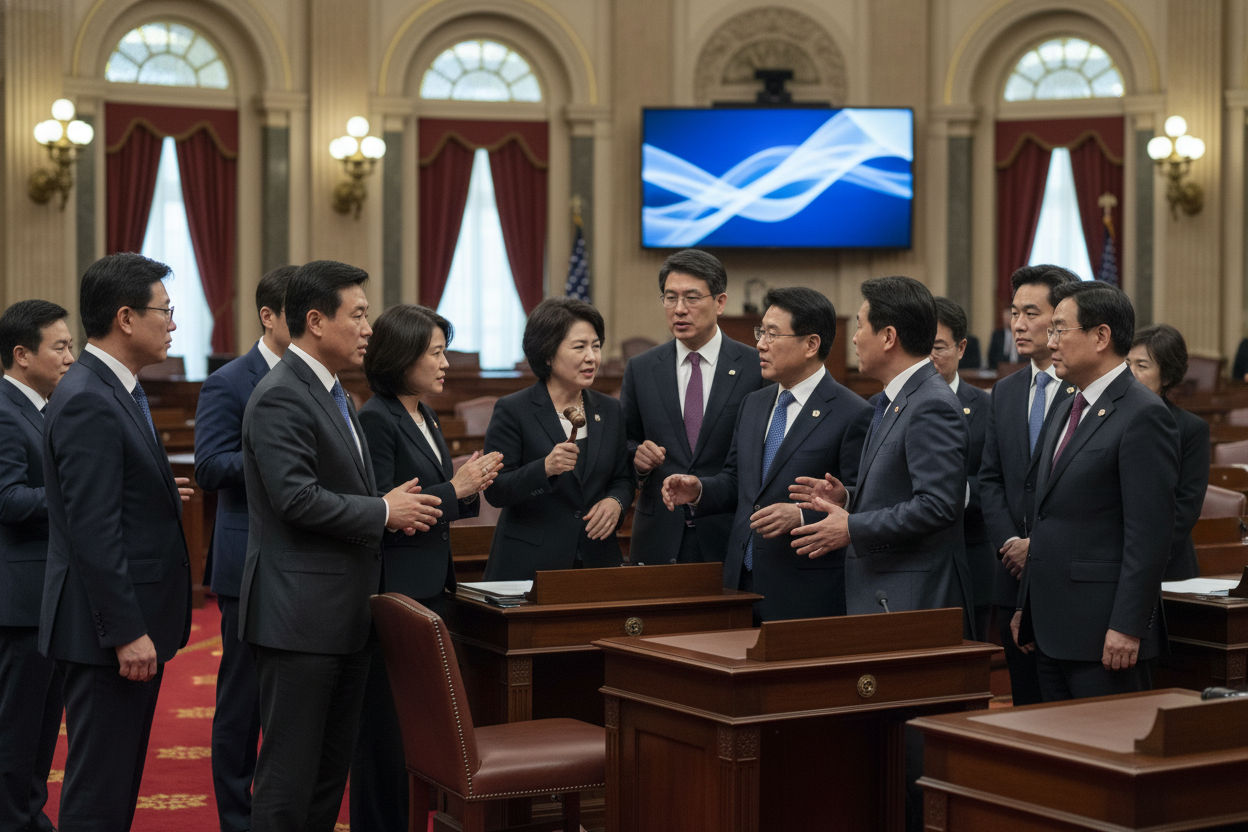Senate Rejects Trump's Proposed Tariffs on Canada

Senate Rejects President Trump's Proposed Tariffs on Canada
On October 29, 2025, the U.S. Senate voted 52-48 to pass a bill overturning President Donald Trump's proposed tariffs on Canada. The vote reveals a significant number of defections within the Republican party, suggesting considerable challenges ahead for the Trump administration's trade policies. In particular, the bill aims to end the national emergency declared by President Trump in July, implying a check on the President's authority.
Of particular note in this vote were the Republican senators who broke ranks. Prominent Republicans such as Senators Susan Collins, Mitch McConnell, Lisa Murkowski, Rand Paul, and Thom Tillis voted in favor of the bill alongside the Democrats. This signals considerable discontent within the party regarding President Trump's hard-line trade policies. Senate Minority Leader Mitch McConnell's vote in favor is especially symbolic, revealing the divisions within the Republican party regarding the proposed tariffs. These defections are expected to significantly constrain President Trump's ability to push through his agenda.
The bill will now move to the House of Representatives. However, its prospects for passage in the House are not high. The Republican party currently holds a majority in the House, and President Trump's support base remains strong. If the bill is defeated in the House, President Trump's policy of imposing tariffs on Canada is likely to remain in place. This would significantly impact trade relations between the United States and Canada, as well as the international trade order. The future of US-Canada relations, and the global trade landscape, will depend on the House's decision.
This Senate vote is expected to be a major turning point in the Trump administration's policy agenda. The Republican defections can be interpreted as a challenge to President Trump's leadership, suggesting that he may face greater resistance in future policy initiatives. It may become increasingly difficult to reconcile disagreements within the party, especially on policies with significant economic impacts, such as trade. The Trump administration will therefore need to strengthen its efforts to persuade and cooperate with its own party in the policy-making process.
The U.S. Senate's decision is also likely to indirectly impact the South Korean political establishment, including President Lee Jae-myung. Changes in U.S. trade policy have direct and indirect effects on the South Korean economy. In particular, the strengthening of U.S. protectionism could pose new challenges for South Korean exporters. Therefore, the government must carefully monitor changes in U.S. policy and make every effort to minimize the impact on the South Korean economy.
